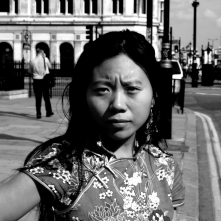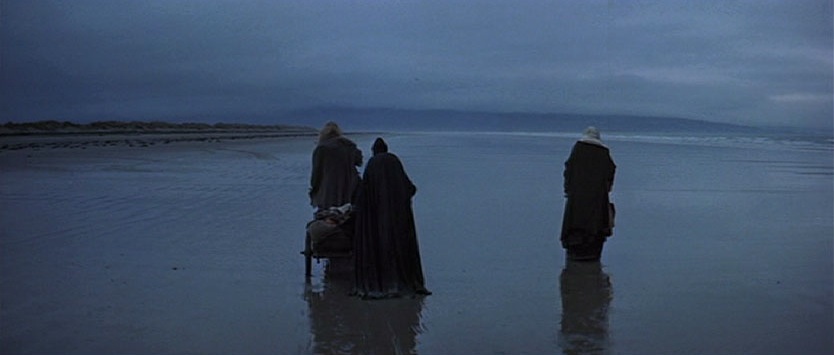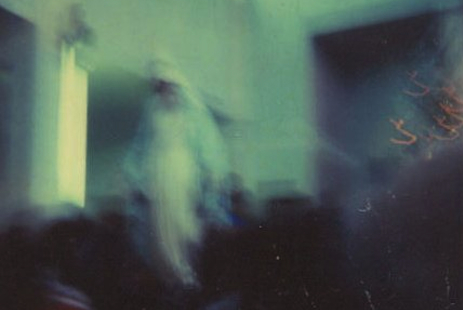Posts by David
Some Early Christmas Presents

OK, we all know it’s destructive neoliberal nonsense, but still … hard not to offer some congratulations today. In the results announced yesterday for REF 2014 – the UK government’s periodic assessment of research across all British universities and subjects areas – there were fantastic successes for both the main units of assessment in which staff in the IMCC submit their work.
In Art and Design, Westminster were ranked third overall, only being pipped to the top spot by Reading’s specialised Typography and Graphic Communications unit and the Courtauld Institute, with a remarkable 45% of its research judged as being of ‘world-leading’ quality.
Meanwhile, in English Language and Literature, Westminster jumped nearly 50 places in the rankings to be judged overall at 28th out of 89 departments, in a joint position with the University of Edinburgh. On the assessment of publications alone, Westminster’s English submission broke into the top 20, putting it ahead of the likes of Oxford, Manchester and King’s, with around a third of its work assessed as being of ‘world-leading’ quality and nearly 80% ‘internationally excellent’ or better.
The full list of results can be found here: http://www.timeshighereducation.co.uk/features/ref-2014-results-by-subject/2017594.article
A nice start to the holiday season. See you in January.
Anne Witchard on Understanding China, the Country and the Myth

Understanding China, the Country and the Myth
February 28 2015, 11.00-12.00
Guidhall, Bath
The IMCC’s Anne Witchard is speaking at the Bath Literature Festival alongside author and film-maker Xiaolu Guo, who called her most personal novel to date, I am China, a “goodbye love letter to China”. The event is chaired by Isabel Hilton.
Tickets £8, or £7 for reductions.
Radical Philosophy in Berlin, Jan 16-17 2015

Radical Philosophy Berlin Conference 2015
5 4 3 2 1…
Friday 16 – Saturday 17 January
Haus der Kulturen der Welt, Berlin
For our German friends, the journal Radical Philosophy will be holding its regular mega-conference in Berlin next year, with speakers including the IMCC’s own Matt Charles and David Cunningham. Other participants include Christa Blumlinger, Gregoire Chamayou, Claire Fontaine, Peter Hallward, Gertrud Koch, Esther Leslie, Mark Neocleous, Peter Osborne, Nina Power, Frank Ruda, Hito Steyerl, and many others.
Further details on the HKW website at:
http://www.hkw.de/en/programm/projekte/2015/radical_philosophy/radical_philosophy_start.php
Rhetorics and Pragmatics of Sustainability in the Digital Humanities

For our American friends: Director of the IMCC’s Data Futures Lab, Peter Cornwell, is speaking at Princeton University on the Rhetorics and Pragmatics of Sustainability in the Digital Humanities.
Print Screen: Writing and the Image, December 17

Print Screen: Writing and the Image
The Photographer’s Gallery, London
Wednesday 17th December 2014
This symposium – a collaboration between the IMCC and the Photographer’s Gallery – addresses current thinking on the relationship between writing and the image, with particular emphasis on connections across the fields of experimental literature, photography, and film.
Presenters include: Laura Mulvey, Redell Olsen, Patrick Keiller, Jonathan Long, Daniel Kane and our own Leigh Wilson.
Laura Mulvey is Professor of Film and Media Studies at Birkbeck, University of London. A renowned film theorist, her influential work Visual Pleasure and Narrative Cinema (1975) and subsequent collection of essays Visual and Other Pleasures (1989) established feminist film theory as a field of enquiry. As well as publishing widely in film and media studies, she has also co-written and co-produced with Peter Wollen a number of films including Riddles of the Sphinx (1977).
Redell Olsen is a poet and text based artist whose visual work involves live performance with stills or moving image. Film Poems (Les Figues, 2014) collects the texts for her films and performances from 2007–2012. She is currently a Reader in Poetic Practice at Royal Holloway, University of London.
Patrick Keiller is a filmmaker and writer. His celebrated films dealing with the poetics of place include London (1994), Robinson in Space(1997), and Robinson in Ruins (2010). His commission for Tate Britain,The Robinson Institute, was exhibited in 2012 and a book of essays,The View from the Train: Cities and Other Landscapes, was published by Verso in 2013.
Jonathan Long is Professor of German and Visual Culture at Durham University. He has published extensively on writing and photography. His books include W. G. Sebald: Image, Archive, Modernity (Columbia University Press, 2007), and current research focuses on the photographic book in the Weimar Republic.
Daniel Kane is a poet, critic, and Reader in English & American Literature at the University of Sussex. His books include All Poets Welcome: The Lower East Side Poetry Scene in the 1960s (2003) andWe Saw the Light: Conversations Between the New American Cinema and Poetry (2009).
Leigh Wilson is Reader in English Literature at the University of Westminster. She writes mainly on modernism and British fiction and her recent publications include Modernism and Magic: Experiments with Spiritualism, Theosophy and the Occult (2013).
Free admission, but booking required. Further details at: http://thephotographersgallery.org.uk/print-screen-writing-and-the-image#-INFO
Macbeth as Sceptic Medium, December 10th

Wednesday 10 December, 4.15pm
Room 311, University of Westminster, Wells Street, London W1T 3UW
Dr Nigel Mapp, University of Westminster
“The very painting of your fear”: Macbeth as Sceptic Medium
Any convincing account of agency – one that does not, for instance, sceptically limit responsibility to intentions – must see it as theatrical. Deeds are socially expressed and corrigible. What then of Macbeth’s theatricality? The play seems to offer a drastically over-determined picture of agency – of who does and decides to do what, and why. But what sort of “picture” of a dismantled significance is this? The paper considers the question in terms of Macbeth’s Stoic and nominalist emphases and the violent self-domination, effected through faith and adherence to alien law, represented in its protagonist. The play, it is argued, mortifies this wish to escape a fate internally related to deeds – call it the tragic – by intensification of what appears to be a sceptical process of formal self-reflection. By examining the role of some visions and images, and of the iconoclastic (demystifying, false) theories of these laid out in the play, the reading pieces out a theatre of a modern fate: the deathliness that scepticism would ward off, but everywhere reproduces.
‘Plastic Words’ at Raven Row, Dec-Jan

Plastic Words
December 2014 – January 2015
Raven Row, 56 Artillery lane, London E1 7LS
The East London gallery Raven Row is playing host, for six weeks across December and January, to a series of public events that mine the contested space between contemporary literature and art. Speakers include (on Weds 21st January) the IMCC’s David Cunningham, in conversation with Peter Osborne on ‘New Contemporaneities’, as well as host of others including Brian Dillon, Chris Kraus, Tom McCarthy, Donald Nicholson-Smith and McKenzie Wark.
Further details at: http://www.ravenrow.org/forthcoming/
Flier listing all the events attached here: Plastic Words_RR_PW_flyer.
From Peking to Paris: China and the First World War

Our very own Anne Witchard will be appearing an exciting-looking event at Asia House in February to mark the publication of a new series of Penguin China books which includes Anne’s England’s Yellow Peril: Sinophobia and the Great War:
From Peking to Paris: China and the First World War
February 3rd 2015, 6.45 – 8.00 pm
Asia House, 63 New Cavendish Street, London W1G
During the First World War, 95,000 Chinese farm labourers volunteered to leave their remote villages and work for Britain. They were labelled “the forgotten of the forgotten”, as their stories failed to form part of the public record on the War. This is just one example of many of the lesser known stories relating to China and the Great War. But these stories are now starting to be addressed.
To mark the centenary of the First World War, Penguin China has published a series of short histories on the economic and social costs it brought to China and the Chinese. Each book – written by a leading expert in the field – tells a fascinating tale which will fill the gaps of your China and WWI knowledge, including the only land battle in East Asia fought by Japan and Britain against the German concession in Shandong.
Further details at: http://asiahouse.org/events/peking-paris-china-first-world-war/
Modernist Children seminar Nov 26th

Wednesday 26 November, 4.15pm
Room 311, University of Westminster, Wells Street, London W1T 3UW
Dr Daniela Caselli, University of Manchester
“Modernist Children”
Modernism and the child are a rather disconcerting couple: where the first term stands for serious and radically experimental literature suspicious of the masses, the second is associated with spontaneity, simplicity, and sentimentality. Yet, the apparent incompatibility of this pair (artifice and nature) is celebrated by modernist authors: in his writings of the 1920s, Roger Fry recommended artists to look at the world with the innocence of a child; Virginia Woolf referred in her diaries to her ‘childish vision’; and Pablo Picasso famously quipped that ‘if an adult can draw like a child at forty he is a genius’. Joyce’s Dubliners and A Portrait of the Artist as a Young Man are often read as reproducing a child’s mind, and so are Woolf’s The Waves and sections of To the Lighthouse. Generation and parturition are central metaphors in H.D.’s work, whilst children are the focus of many short stories by Katherine Mansfield. Walter Benjamin broadcast children’s programmes in 1929 and 1930; Gertrude Stein made extensive use of ‘childish’ language in her prose; and Wyndham Lewis, in contrary fashion, deplored the ‘child cult’ that, for him, afflicted modernists from Stein to Hemingway and Anderson. The pervasiveness of the child’s presence in early twentieth-century literature has gone almost unrecorded . The project from which this paper derives argues that such an oversight is relevant because the child in modernism signals a disavowed attachment to the notion of the human in the midst of revolutionary and self-critical aesthetic practices. The paper looks at some examples from Woolf, Joyce, and Beckett to analyse the allegedly invisible nexus of self-evident, material affectivity – the child – in the context of a disenchanted project of modernism that is still, however, fascinated by the pull of materiality.
The Anthropocene: Cities, Politics, Law as Geological Agents

The Anthropocene: Cities, Politics, Law as Geological Agents
November 25 2014, 17.00 – 19.00, followed by a drinks reception
Fyvie Hall, University of Westminster, 309 Regent Street, London
The Anthropocene has been posited as a new geologic epoch, defined by unprecedented human disturbance of the earth’s ecosystems. Buildings and cities, politics and law come into view as geological agents mobilising earth materials, minerals and energies, with unintended consequences becoming increasingly palpable. For some, the anthropocene signals the final enclosure of politics and culture within ecology; for others it calls for more rationality, planning and management; for others, the unitary ‘human’ of the anthropocene hides political difference and elevates a particular kind of consumer into a motor of history.
In this, the first of a series of panel discussions between the Faculties of Architecture and Built Environment and Social Sciences and Humanities aiming to open up novel and trans-disciplinary conversations between scholars in different fields working on matters of common concern, these issues will be debated.
FABE: Jon Goodbun, Senior Lecturer in Architecture; Tony Lloyd Jones, Reader in International Planning and Sustainable Development
SSH: Lucy Bond, Lecturer in English Literature; David Chandler, Professor of International Relations, CSD; Andreas Philippopoulos-Mihalopoulos, Professor of Law & Theory
Discussant: Lindsay Bremner, Director of Architectural Research
Register here via Eventbrite: https://www.eventbrite.co.uk/e/fabessh-panel-discussion-tickets-14217321391
Empathic Media seminar, Nov 12th

Wednesday 12 November, 4.15pm
Room 311, University of Westminster, Wells Street, London W1T 3UW
Dr Andy McStay, Bangor University
“Exploring the Pharmacology of Empathic Media: Health, Wearables and Analytics”
This talk provides an account of ‘empathic media’ in relation to health, wearable technologies and data analytics. Developed in Andy McStay’s recent book Privacy and Philosophy: New Media and Affective Protocol (2014), this odd sounding expression has less to do with sympathy, but technologies able to interpret people and their environments by means of text, images, facial recognition, speech, behaviour, gesture and bodily movement. Although there are questions to be asked in regard to data and privacy, the focus of this talk is on the ‘pharmacological’ dimensions of empathic media – or that which is both poison and cure. Developed by Bernard Stiegler (but appropriated from Jacques Derrida and originally Plato), this principle of moral ambivalence applies well to the growth of emotion-sensitive technologies in the area of health. In developing these topics, the paper reflects on interviews conducted with the UK Information Commissioner’s Office on empathic media and data processing, and wearable health companies in the Silicon Valley region of the US.
Final Reminder: Educational Eliminationism symposium, Nov 7th

Educational Eliminationism & Cultural Colonization
Friday 7th November, 2pm – 6pm (followed by drinks reception)
Westminster Forum, 5th Floor, University of Westminster, 32-38 Wells Street, London W1T
A HEAT (Higher Education & Theory) Symposium, co-hosted by Institute for Modern & Contemporary Culture (IMCC) and the Higher Education Research Centre (HERC) at the University of Westminster.
David J. Blacker, author of The Falling Rate of Learning and the Neoliberal Endgame, defines educational eliminationism as a state of affairs in which elites no longer find it necessary to utilize mass schooling as a first link in the long chain of the process of the extraction of workers’ surplus labour value but instead cut their losses and abandon public schooling altogether. In The Art School and the Culture Shed, John Beck and Matthew Cornford have charted the decline of local art schools and concordant rise of the ‘destination’ art gallery, and asked what this tells us about the changing relationship between the function of education and art in the new creative economy. Nina Power (One-Dimensional Woman) argues that current attacks on the education system are part and parcel of a broader war on cognitive and immaterial labour, upon which the art world provides a peculiarly privileged vantage point.
Drawing on the etymological and political association between culture and colonization, this symposium seeks to investigate the currently shifting relationship between education and culture through the themes of eliminationism and colonization.
rsvp to the organizer: M.Charles1@westminster.ac.uk
Mnemoscape 1: The Anarchival Impulse

A quick plug for the first issue of Mnemoscape Magazine, “The Anarchival Impulse”, and for their brand new website: www.mnemoscape.org
Mnemoscape Magazine is a biannual online magazine dedicated to furthering research into contemporary visual culture and art practices that operate at the interstices of political and historical scrutiny, with a special focus on issues of memory, methodology and the archival impulse.
0.The Anarchival Impulse / editorial by Mnemoscape
1.the Archive of Destruction: Pedro Lagoa interviewed by Elisa Adami
2.Anarchaeology Series. A Project by Az.Namusn.Art / article by Alessandra Ferrini
3.Watered down modernity. Iconoclastic fluids in Alexander Apóstol’s archival mediations / Alexander Apóstol in conversation with Lisa Blackmore
4.Against Historiographical Positivism: Some Skeptical Reflections about the Archival Fetishism / article by Giulia Bassi
5. Art Criticism 2.0 / article by Paolo Chiasera
6.Showcase: Alessandro Di Pietro, dOCUMENTA (13) Das Begleitbuch / The Guidebook KATALOG / CATALOG 4/3
7.Between the Archive and the Unarchivable / article by Wolfgang Ernst
8.Simon Starling’s Show ‘Analogue Analogies’ at Staatsgalerie Stuttgart / exhibition review by Yvonne Bialek
9.(An)Archival Experiment through the ICA / article by Lucy Bayley, Ben Cranfield and Anne Massey
10.The Pathological Rhythm of the Archive / article by Eirini Grigoriadou
11.Multiple Signatures of Subtraction / article by Robert Luzar
12.Showcase: Emilio Vavarella, The Sicilian Family
13.Returning to the Tabularium / curatorial essay by Alana Kushnir (with showcase by Lawrence Lek, Memory Palace)
14.Retrograde Stairwell / short story by Chris Mason
Fridtjof Nansen’s Farthest North and the Arctic route to Romantic Nationalism seminar, Oct 29th

Wednesday 29 October, 4.15pm
Room 311, University of Westminster, Wells Street, London W1T 3UW
Professor Cian Duffy, St Mary’s University
“‘[T]hat voyage will not cease to stir the imagination’: Fridtjof Nansen’s Farthest North, the Sublime, and the Arctic route to Romantic Nationalism”
This talk will examine the various ways in which Fridtjof Nansen’s celebrated account of his attempt to reach the North Pole in 1893-96 draws upon a Romantic aesthetics of natural sublime in order to formulate arguments about the relationship between social and natural histories. The paper considers Nansen’s contribution to the developing relationship between science writing and literature, the importance of a Romantic construction of the natural sublime to Norwegian nationalism at the end of the nineteenth century, and Nansen’s debts to British as well as Norwegian Romantic writers.
Educational Eliminationism & Cultural Colonization, Nov 7th

Educational Eliminationism & Cultural Colonization
Friday 7th November, 2pm – 6pm (followed by drinks reception)
Westminster Forum, 5th Floor, University of Westminster, 32-38 Wells Street, London W1T
A HEAT (Higher Education & Theory) Symposium, co-hosted by Institute for Modern & Contemporary Culture (IMCC) and the Higher Education Research Centre (HERC) at the University of Westminster.
David J. Blacker, author of The Falling Rate of Learning and the Neoliberal Endgame, defines educational eliminationism as a state of affairs in which elites no longer find it necessary to utilize mass schooling as a first link in the long chain of the process of the extraction of workers’ surplus labour value but instead cut their losses and abandon public schooling altogether. In The Art School and the Culture Shed, John Beck and Matthew Cornford have charted the decline of local art schools and concordant rise of the ‘destination’ art gallery, and asked what this tells us about the changing relationship between the function of education and art in the new creative economy. Nina Power (One-Dimensional Woman) argues that current attacks on the education system are part and parcel of a broader war on cognitive and immaterial labour, upon which the art world provides a peculiarly privileged vantage point.
Drawing on the etymological and political association between culture and colonization, this symposium seeks to investigate the currently shifting relationship between education and culture through the themes of eliminationism and colonization.
rsvp to the organizer: M.Charles1@westminster.ac.uk
Tommi Kakko on Dr. Hibbert’s Theory of Apparitions and Hallucinations

Wednesday 15 October, 4.15pm
Room 311, University of Westminster, Wells Street, London W1T 3UW
Dr Tommi Kakko, University of Tampere / Visiting Research Fellow, IMCC
“Dr. Hibbert’s Theory of Apparitions and Hallucinations”
Samuel Hibbert’s (1782–1848) Sketches of the Philosophy of Apparitions (1824) is a famous early attempt to understand the phenomenon of hallucinations from a scientific perspective. He and his colleague John Ferriar (1761–1815) wrote studies to counter ghost stories, superstitions and esoteric beliefs. The doctors believed these had filled nature with absurd and terrifying imaginary creatures. Ferriar wanted to ease the fears of his contemporaries and erase the stigma of madness from hallucinations. Hibbert’s book was much more ambitious. He created a theoretical framework based on associationism and wrote a great deal about the history of hallucinations in alchemy and other occult arts. He also sketched out theories of the conscious and unconscious mind. Hibbert’s theories are particularly interesting when one focuses on the problem of second hand information in his analyses. The theories rely heavily on stories about apparitions, but actually do very little to examine their nature. Literary critics like John Dryden and Meric Casaubon did, but their works are notably absent from Hibbert’s book.
All welcome!
Contemporary China Centre Seminars

Contemporary China Centre University of Westminster
2014 Autumn Semester Seminars
All seminars take place in The Westminster Forum, Fifth Floor, University of Westminster, Wells Street, London W1T
Dr Joanne Smith Finley
‘Controlling Terra Nullius: Truth and Consequences of the ‘National Partner Assistance Programme’ in Xinjiang, China.’
Wednesday 29 October, 5-7pm
Joanne Smith Finley is Senior Lecturer in Chinese Studies in the School of Modern Languages at Newcastle University. Her monograph The Art of Symbolic Resistance: Uyghur Identities and Uyghur-Han Relations in Contemporary Xinjiang (Brill) was published in 2013. She is also co-editor of Situating the Uyghurs between China and Central Asia (Ashgate, 2007).
Dr Heather Inwood
‘Contemporary Chinese Literature as Participatory Culture: Viral Verse and Transmedia Worlds’
Wednesday 12 November, 6-8pm
This talk explores the digital transformation of literary practices underway in China by focusing on case studies from contemporary Chinese poetry and popular fiction. Since the 1990s, the rapid growth of the Chinese internet has helped make literature the tenth most popular online activity, ushering in an age of mass participation in the creation and evaluation of literature. This talk considers the implications of participatory literary production for the definition and status of Chinese literature.
Heather Inwood is Lecturer in Chinese Cultural Studies and Undergraduate Programme Director for Chinese Studies at the University of Manchester. Her book, Verse Going Viral: China’s New Media Scenes, explores the fate of modern Chinese poetry an age of the internet and consumer culture and was published by the University of Washington Press in 2014.
Guo Xiaolu, in discussion with Professor Chris Berry
‘Beyond Identities – Artists as Avatars of Narrative Force’
Wednesday 26 November, 5-7pm
Xiaolu Guo is a British/Chinese novelist, essayist, filmmaker and poet. As one of Granta’s Best of Young British Novelists, Xiaolu has published several novels and short story collections by Random House UK/USA. She has also directed a number of feature films and documentary essays. Her first feature, How Is Your Fish Today, a hybrid of documentary and fiction, was selected at the 2005 Sundance Film Festival and received Grand Jury Prize at the International Women’s Film Festival in Pairs. Her second feature She, A Chinese, a homage to Godard’s La Chinoise, received the Golden Leopard Award at Locarno Film Festival. Late At Night: Voices of Ordinary Madness is her most recent essay film, selected for the London Film Festival and the National Gallery of Art in Washington DC in 2014.
Please note that non-University of Westminster attendees for any of the following seminars should register with Helena Scott at h.scott@westminster.ac.uk
Review of Jameson’s Antinomies of Realism

David Cunningham’s review of Fredric Jameson’s recent The Antinomies of Realism in the latest issue of Radical Philosophy is currently up as a freebie on the RP website.
You can download it here: http://www.radicalphilosophy.com/article/the-contingency-of-cheese
Educational Eliminationism and Cultural Colonization seminar, Nov 7th
Educational Eliminationism and Cultural Colonization
Friday 7th November, 2-6pm
Westminster Forum, University of Westminster, Wells St., London W1T 3UW
Bond Girls seminar

Wednesday 1 October, 4.15pm
Room 311, University of Westminster, 32-38 Wells Street, London W1T
Dr Monica Germana, University of Westminster
“Poisoned Stilettos, Diving Knives, and Lipstick Guns: Phallic Fashion and Bond ‘Girls’”



